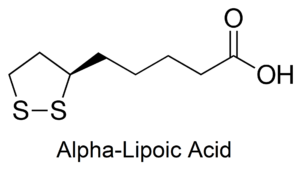Heart Disease Prevention and Fish Oil

Fish oil is one of the most common supplements used by thousands of individuals in the United States. The two best understood constituents of fish oil are two omega-3 fatty acids, eicosapentaenoic acid (EPA) and docosahexaenoic acid (DHA). Both of these fatty acids have anti-inflammatory properties that, in general, are thought to promote health.
Over the years, controversies have come and gone around fish oil, with some studies claiming no benefits, and others claiming the reverse. However, for heart disease, consumption of seafood containing omega-3 fats is well accepted to reduce risks. The American Heart Association recommends consuming 1-2 meals a week of seafood in order to reduce risks of congestive heart failure, coronary heart disease, ischemic stroke, and sudden cardiac death (Rimm 2018).
Fish in the Diet

To best achieve these benefits, wild-caught, cold-water fish, lower on the food chain, are usually the best choice. Larger fish generally have higher levels of mercury and other pollutants. In addition, farm-raised fish are often lower in omega-3 fats and higher in pollutants as well (FDA 2020, Weaver 2008). Toxin levels in farmed salmon in one study were so high that when mice were fed a diet of farmed salmon they became obese and developed diabetes, a far cry from the paragon of health we associate with fish consumption (Ibrahim 2011). Wild-caught fish is a significantly better choice.
Fish Oil
Based on the health benefits seen from consuming fish, fish oil supplements were a logical next step in order to try and achieve these benefits in a pill. The latest meta-analysis of research evaluating fish oil for reduction in heart disease risk suggests a modest benefit (Abdelhamid 2020).
However, this isn’t the end of the story. Some of the latest research is suggesting that a number of the health benefits come primarily from EPA and that high levels of DHA may actually block some of these benefits. This effect was born out in research on mental health, where fish oil with more than 60% EPA is more effective than other varieties (Liao 2019). Evidence is starting to suggest that heart disease benefits may also be maximized with higher EPA formulations.
A meta-analysis comparing statin medications to statins with EPA showed that major adverse heart events were reduced by 18% with EPA. Heart attacks were reduced by 30% with the its addition (Doshi 2020). Those are impressive reductions, especially considering that heart disease is still the number one killer in the United States.
Triglycerides
Part of the benefit of fish oil is the reduction of triglycerides. Triglycerides are a type of fat, often found in the bloodstream. In high enough quantities, triglycerides can lead to heart disease. For a number of years, prescription fish oil has been approved as a standard therapy for reducing triglycerides to improve heart health. Interestingly, EPA is also more effective than combination fish oils for reducing triglycerides (Marston 2019, Chen 2015). For both mental health and heart disease, higher EPA formulations appear to provide greater benefits.
Conclusions
Heart disease is still the number one killer in the United States. While there has been controversy around findings with fish oil and heart disease in the past, the latest research provides reasonable evidence that consuming wild-caught seafood or high EPA containing fish oil will improve heart health. If you don’t enjoy eating seafood, taking EPA fish oil appears to be a viable alternative for reducing the incidence of heart disease.



